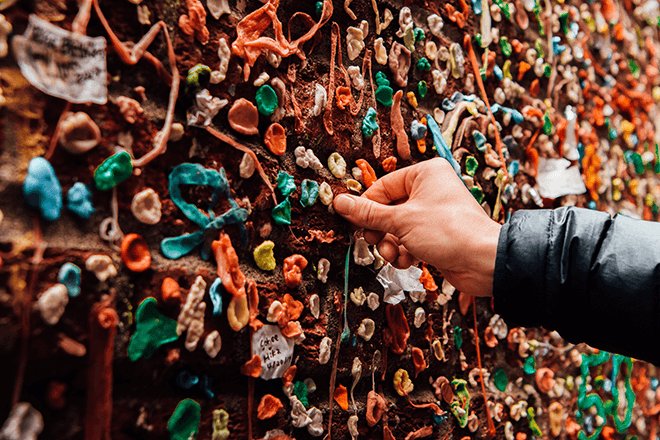I still remember the first time I met my therapist. My university health center gave me 5 names, and after looking each of them up, I called one because I loved the way she described her practice online — especially because she’d included that humor was important to her. I’m pretty sure I cried throughout our entire first session (and many following), but from the moment I stepped into her office I felt safe enough to show the most vulnerable parts of myself.
3 years later, I feel grateful for the amazing relationship I had with my therapist and all the things she helped me realize about myself and my relationships. It was truly special to have her as a consistent presence throughout all the change and turmoil of college. And while this consistency and connection was great, it also makes me nervous about when I eventually start seeing a new therapist.
Whether it be because of a move, your therapist retiring or taking time off, or just because you want a change, transitioning to a new therapist can be challenging. There’s an overwhelming feeling of “starting over,” especially if you feel a strong connection with your old therapist.
But just as other types of relationships come to an end as we grow, so do those with our therapists, and there’s a lot that can be gained from seeing someone new. If you’re thinking about seeing a new therapist, keep these tips in mind for a more positive experience of transitioning to someone new.
Don’t Try to Cram it All Into the First Session
With your old therapist, maybe each session felt like picking up a conversation that never really ended. Maybe you’d gotten to a point where they knew all the characters in your life and the important backstories, and you found you didn’t have to give too much context.
This is a wonderful place to be with a therapist, and it absolutely can happen again with your next one. But, it’s not going to happen the first time you meet with them. Building a therapist-client relationship takes time, and it would be impossible to cram your entire life story into one hour.
Instead, take your time and allow your first few sessions to be about orienting yourself to a new therapist.
“My primary goal for that first meeting is to make the client feel welcome and understood,” Talkspace therapist Dr. Amy Cirbus explains. “Those conditions are the building blocks for successful therapy. The client needs to feel safe enough to want to come back and invest themselves in treatment with me.”
Don’t Compare Too Early or Too Often
It might be tempting to pass judgment after one or two sessions, and decide that this therapist just isn’t for you. However, this may be rushing the process.
Cirbus suggests “attending at least 4-6 sessions with a therapist before assessing further.” She adds, “If, by the 4th session you’re not getting what you wanted or expected, try to pinpoint why this might be.”
If you can figure out what you’re not getting from this therapist, speak up and see if you’re able to problem solve together. Most therapists are open to feedback and want to meet their clients’ needs, and you may be able to work towards a more satisfying relationship.
It’s also important to catch yourself if you’re constantly comparing your new therapist to your old one. While there may be differences in their personalities or styles, this isn’t inherently a bad thing.
“Keep in mind that a fresh perspective can give you new insight and new growth opportunities,” Cirbus said.
Build on Your Progress
Although you may be starting with a new therapist, you’re not starting from scratch. The therapy experience you already have under your belt is valuable, and can be built upon in a new therapist-client relationship.
With your new therapist, take the time to share some of the main things you worked on during your last experience in therapy. Talk about your successes, struggles, and ongoing challenges. You may even be able to get your old therapist to share any notes or records they have from your sessions.
As a therapy veteran, you also are in a better position to understand what you like and don’t like when it comes to therapy. You can use this knowledge to get the most out of your next experience!
Cirbus explains that “Knowing what’s been helpful for them in previous treatment and what they’re looking for this time around gives me insight into the best ways to make progress together.”
Most importantly, give it time, and don’t try to recreate an identical experience to the one you had in therapy before. Just as no two friendships are exactly the same, each relationship you have with a therapist will be unique.
“As a therapy alum, you know the power of a good relationship with your therapist,” Cirbus said. “Give this relationship time to develop.
Talkspace articles are written by experienced mental health-wellness contributors; they are grounded in scientific research and evidence-based practices. Articles are extensively reviewed by our team of clinical experts (therapists and psychiatrists of various specialties) to ensure content is accurate and on par with current industry standards.
Our goal at Talkspace is to provide the most up-to-date, valuable, and objective information on mental health-related topics in order to help readers make informed decisions.
Articles contain trusted third-party sources that are either directly linked to in the text or listed at the bottom to take readers directly to the source.




